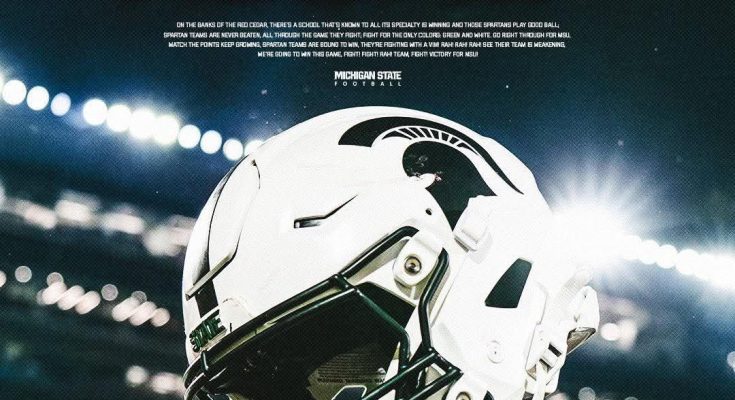Next week’s matchup between Michigan State and USC is generating a lot of buzz, but what’s really catching people off guard is the kickoff time: 11 PM Eastern Time. That’s quite late for a college football game, and it raises plenty of questions and discussion points about why it’s scheduled so late, how that timing affects players, fans, and the broader landscape of college football. It’s worth diving into the implications of such a late kickoff, how it fits into the current media landscape, and what it means for everyone involved from athletes to broadcasters to the fans watching at home.
Starting with the basics, college football games traditionally start in the early afternoon or early evening hours, with kickoff times ranging from around noon to 8 or 9 PM Eastern Time for big games. An 11 PM kickoff is almost unheard of, especially for a regular-season game, and it immediately makes you wonder what factors led to this decision. A major driving force behind the scheduling of college football games is television networks and their desire to maximize viewership and ad revenue. Networks like ESPN, Fox, and CBS hold the broadcast rights for college football and aim to schedule games in a way that optimizes ratings. Sometimes, they place marquee matchups in prime time slots to capture the largest possible audience.
However, 11 PM Eastern Time is late even by prime time standards, especially considering the day and week this game is happening. For many viewers on the East Coast, that’s past the usual bedtime for many people, particularly families and younger fans. This could potentially reduce the live audience size on the East Coast, but the decision to place the game so late is likely influenced by several key factors, including the location of the game, the time zones involved, and the desire to avoid clashing with other major sporting events.
Michigan State is based in East Lansing, Michigan, which operates in the Eastern Time Zone. USC is in Los Angeles, which is on Pacific Time. An 11 PM kickoff Eastern means an 8 PM kickoff Pacific—right in the heart of prime time on the West Coast. This is likely a deliberate move by broadcasters to cater to the West Coast audience, which is a massive market and often underserved during the early evening hours for college football, as many games start too early in the afternoon Pacific Time. By scheduling the game at 11 PM Eastern, the network ensures that the game starts at a comfortable prime time hour for West Coast viewers, potentially increasing ratings and advertising revenue in that key demographic.
From the players’ perspective, an 11 PM Eastern kickoff means they will likely be playing late into the night, potentially past midnight local time if the game runs long. This raises concerns about athletes’ performance and safety, as studies have shown that late-night physical exertion can disrupt natural circadian rhythms, impair recovery, and increase injury risk. The preparation routines for athletes will be adjusted significantly. Normally, teams have a consistent routine leading up to an afternoon or early evening game: waking up early, having meals at set times, and getting mental and physical preparation in the hours leading to kickoff. With a late kickoff, this routine flips. Teams have to manage energy levels, nutrition, and rest differently. They might take naps in the afternoon and have a light early dinner before gearing up for a late-night competition. The coaching staff and athletic trainers will need to monitor players closely to ensure they stay sharp and avoid fatigue-related mistakes or injuries.
Moreover, the fan experience, particularly those attending the game in person, is impacted by such a late kickoff. While the game will start at a reasonable local time for the West Coast fans in Los Angeles—around 8 PM—the Michigan State fans who travel or attend might find it challenging to stay engaged late into the night, especially with a game expected to last about three to four hours. The tailgating and pre-game atmosphere, usually a big part of the college football experience, may feel abbreviated or less lively because of the later schedule. Post-game activities and travel plans will also be disrupted, especially for those fans who need to return home late or have work or school the next day.
For viewers on the East Coast watching from home, staying up until 11 PM to watch a game can be a mixed bag. Some diehard college football fans will relish the opportunity to watch a marquee matchup late at night, especially if they want to avoid early conflicts with other games or if they simply enjoy night games’ atmosphere. However, for casual viewers or families with children, the late hour might be a deterrent. This can affect overall TV ratings and advertising revenue if the audience tapers off because of the timing. Networks might try to compensate by promoting the game heavily or offering streaming options for viewers who want to watch the game on delay or highlights the next day.
It’s also worth considering how this late kickoff fits into the broader college football schedule and media landscape. In recent years, college football has expanded its footprint on television and streaming platforms, with games starting at all hours of the day and night to fill programming slots and appeal to various regional audiences. Saturday football has become a near-continuous event, with games starting as early as 9 or 10 AM Pacific and continuing into the night Eastern Time. The 11 PM kickoff for Michigan State and USC may be part of this evolving trend where games are scheduled to maximize TV exposure and revenue rather than strictly adhere to traditional kickoff times.
This approach reflects the broader commercialization and nationalization of college football. The sport used to be more regionally focused, with fans tuning in mostly to their local or conference teams. Now, with national broadcasts and streaming platforms, networks try to create matchups that appeal to wide audiences across multiple time zones. The Michigan State versus USC game, featuring a Big Ten powerhouse and a Pac-12 contender, is exactly the kind of cross-conference, coast-to-coast matchup that attracts broad interest. Scheduling it at a time convenient for the West Coast while still being accessible to East Coast viewers—even if late—is a strategic compromise.
There’s also the competitive aspect of scheduling to consider. With so many games happening on Saturdays, networks often stagger start times to avoid overlapping marquee games. The 11 PM ET slot might have been chosen to ensure that this game stands out as the nightcap event, free from competition with other big games that typically take place earlier in the day. This can help draw viewers who want to catch a high-profile game without the distraction of simultaneously running matches. For fans who like to binge-watch several games in a row, this late game provides a perfect way to cap off a day of college football.
Another interesting element is how the late kickoff interacts with college football traditions and fan culture. College football Saturdays are often considered sacred in the fall, with fans dedicating the entire day to watching games, attending tailgates, and supporting their teams. A game starting at 11 PM disrupts the usual rhythm and might feel out of place for traditionalists. However, it also adds a new dynamic—imagine the energy of a night game under the lights, with fans and players battling it out well into the night. Night games carry a special atmosphere and can create memorable moments, but they require a willingness from everyone involved to adjust their schedules and expectations.
In addition to traditional TV broadcasts, the rise of streaming services and digital platforms means that viewers can watch games whenever it’s convenient for them. If the live 11 PM kickoff is too late for some fans, they might choose to watch highlights or full replays the next day. This shift in viewing habits may lessen the impact of late kickoff times on ratings, as networks monetize these digital views and keep fans engaged long after the game ends. However, nothing quite replaces the excitement of watching a live game, especially one with high stakes like Michigan State versus USC.
The late kickoff could also impact betting markets and fantasy football players. For bettors, the unusual timing might influence how they place their bets or make predictions. Late-night games can be unpredictable due to player fatigue and other factors. Fantasy football managers will need to keep track of player performances that come in after most other games have been played, potentially affecting lineup decisions and scoring.
Looking at the bigger picture, this late kickoff is a microcosm of the shifting priorities in college sports, where TV contracts and national exposure often drive decisions over tradition and convenience. The financial stakes in college football are enormous, with billions of dollars generated through broadcasting rights, sponsorships, and merchandise sales. Networks are constantly looking for ways to maximize their investments, and placing a high-profile game like Michigan State versus USC in a unique time slot is one such strategy.
Ultimately, while an 11 PM ET kickoff might seem strange or inconvenient to some, it’s a strategic decision shaped by the competing interests of media rights holders, teams, players, and fans. It highlights the challenges of balancing regional time zones, maximizing audience reach, and maintaining the integrity and excitement of the sport. The game itself promises to be a thrilling contest between two prominent programs, and the late kickoff adds an extra layer of intrigue and anticipation. Whether fans stay up late to catch every play or catch up later through highlights and replays, this matchup will be remembered for its unusual timing as much as its on-field action.
As the day approaches, it will be interesting to see how the teams prepare for such a late start, how fans adjust their plans, and how the broadcast performs in ratings. This kickoff time may even set a precedent for future scheduling decisions as college football continues to evolve and adapt to the demands of a national audience spread across multiple time zones. The 11 PM ET start is more than just a game time—it’s a sign of how the sport is changing in the era of media-driven scheduling and the ongoing quest to capture and hold viewers’ attention in an increasingly crowded entertainment landscape.



